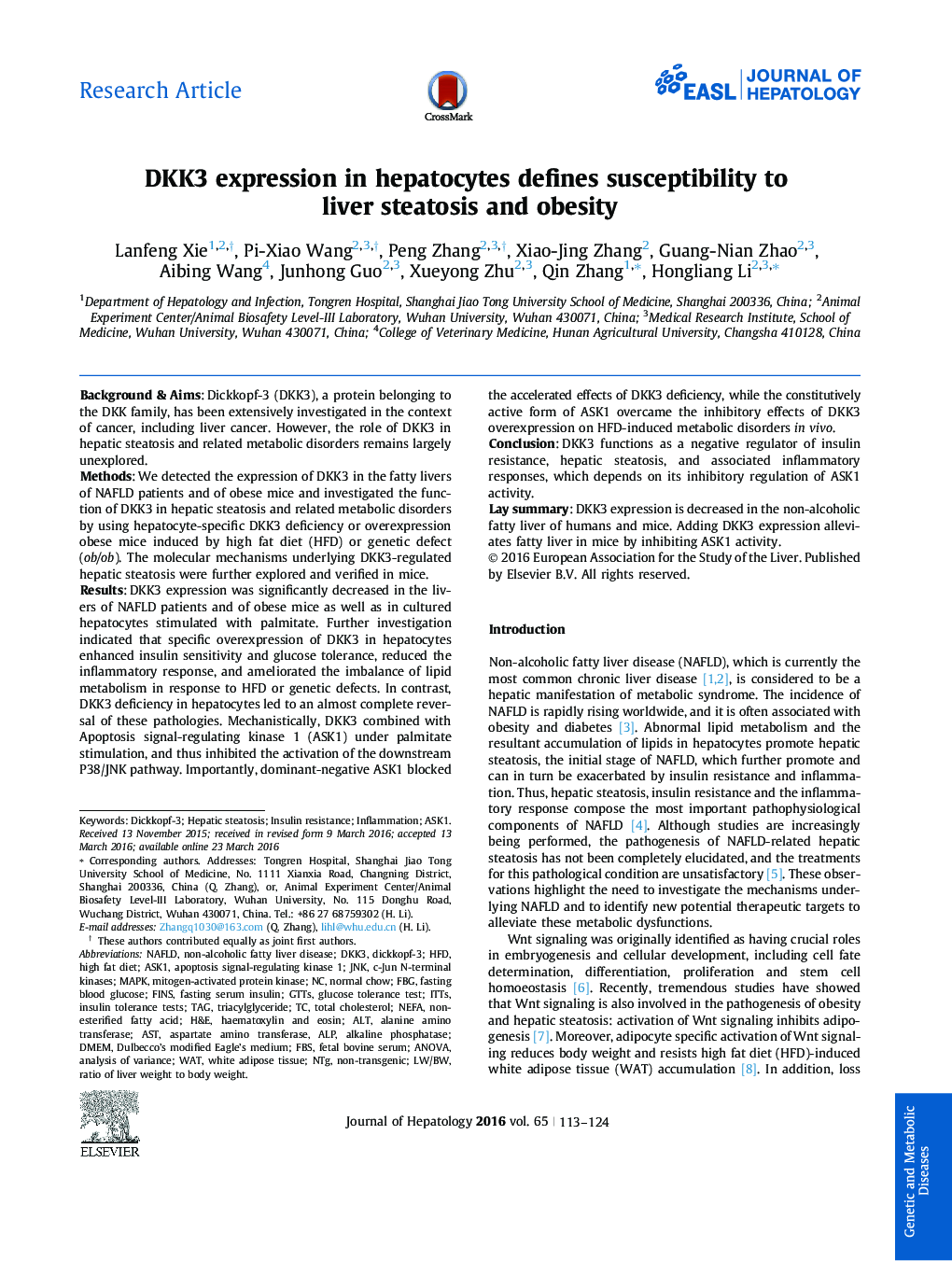| کد مقاله | کد نشریه | سال انتشار | مقاله انگلیسی | نسخه تمام متن |
|---|---|---|---|---|
| 6101249 | 1211101 | 2016 | 12 صفحه PDF | دانلود رایگان |

Background & AimsDickkopf-3 (DKK3), a protein belonging to the DKK family, has been extensively investigated in the context of cancer, including liver cancer. However, the role of DKK3 in hepatic steatosis and related metabolic disorders remains largely unexplored.MethodsWe detected the expression of DKK3 in the fatty livers of NAFLD patients and of obese mice and investigated the function of DKK3 in hepatic steatosis and related metabolic disorders by using hepatocyte-specific DKK3 deficiency or overexpression obese mice induced by high fat diet (HFD) or genetic defect (ob/ob). The molecular mechanisms underlying DKK3-regulated hepatic steatosis were further explored and verified in mice.ResultsDKK3 expression was significantly decreased in the livers of NAFLD patients and of obese mice as well as in cultured hepatocytes stimulated with palmitate. Further investigation indicated that specific overexpression of DKK3 in hepatocytes enhanced insulin sensitivity and glucose tolerance, reduced the inflammatory response, and ameliorated the imbalance of lipid metabolism in response to HFD or genetic defects. In contrast, DKK3 deficiency in hepatocytes led to an almost complete reversal of these pathologies. Mechanistically, DKK3 combined with Apoptosis signal-regulating kinase 1 (ASK1) under palmitate stimulation, and thus inhibited the activation of the downstream P38/JNK pathway. Importantly, dominant-negative ASK1 blocked the accelerated effects of DKK3 deficiency, while the constitutively active form of ASK1 overcame the inhibitory effects of DKK3 overexpression on HFD-induced metabolic disorders in vivo.ConclusionDKK3 functions as a negative regulator of insulin resistance, hepatic steatosis, and associated inflammatory responses, which depends on its inhibitory regulation of ASK1 activity.Lay summaryDKK3 expression is decreased in the non-alcoholic fatty liver of humans and mice. Adding DKK3 expression alleviates fatty liver in mice by inhibiting ASK1 activity.
93
Journal: Journal of Hepatology - Volume 65, Issue 1, July 2016, Pages 113-124